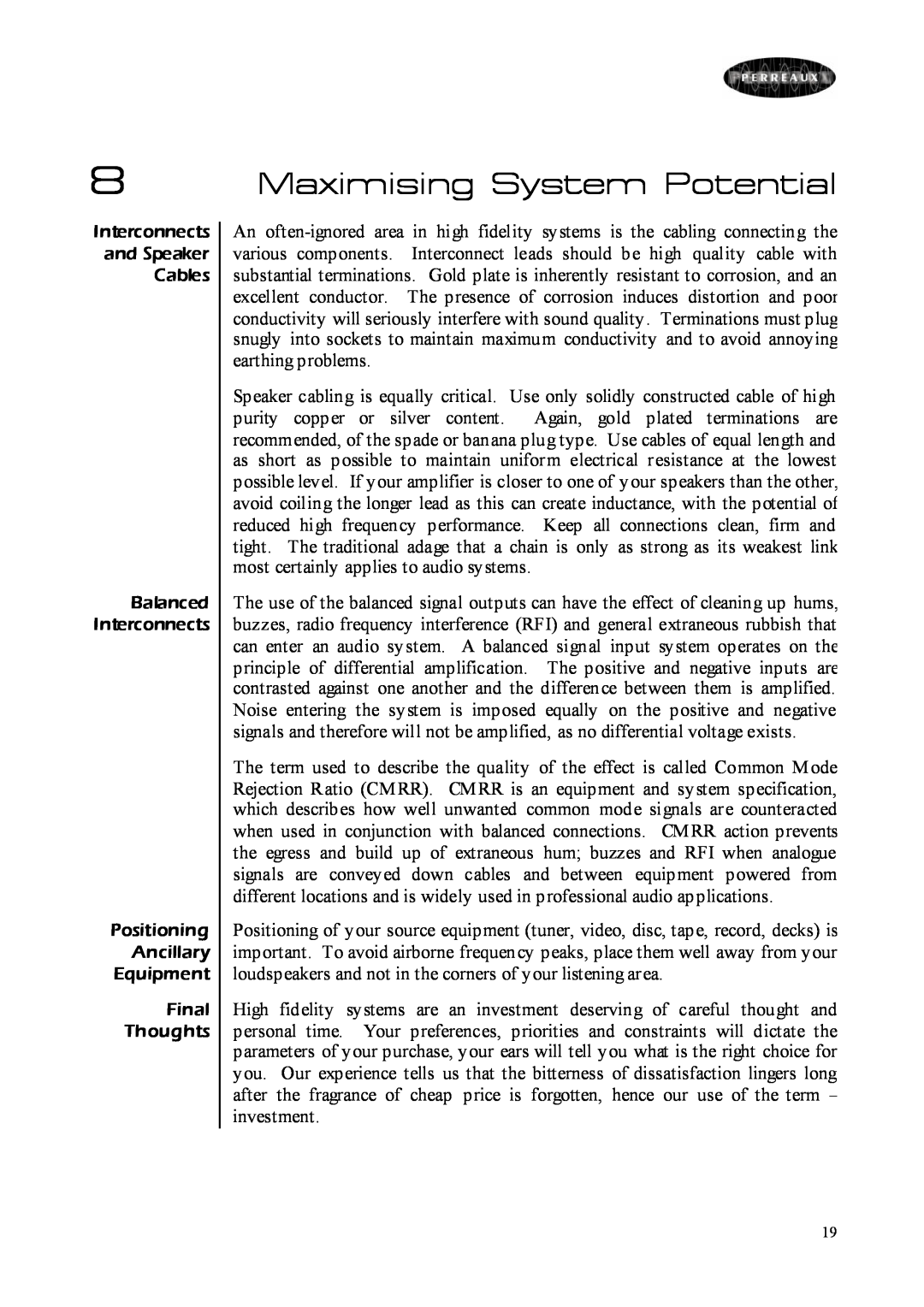
8Maximising System Potential
Interconnects
and Speaker
Cables
Balanced Interconnects
Positioning
Ancillary
Equipment
Final
Thoughts
An
Speaker cabling is equally critical. Use only solidly constructed cable of high purity copper or silver content. Again, gold plated terminations are recommended, of the spade or banana plug type. Use cables of equal length and as short as possible to maintain uniform electrical resistance at the lowest possible level. If your amplifier is closer to one of your speakers than the other, avoid coiling the longer lead as this can create inductance, with the potential of reduced high frequency performance. Keep all connections clean, firm and tight. The traditional adage that a chain is only as strong as its weakest link most certainly applies to audio systems.
The use of the balanced signal outputs can have the effect of cleaning up hums, buzzes, radio frequency interference (RFI) and general extraneous rubbish that can enter an audio system. A balanced signal input system operates on the principle of differential amplification. The positive and negative inputs are contrasted against one another and the difference between them is amplified. Noise entering the system is imposed equally on the positive and negative signals and therefore will not be amplified, as no differential voltage exists.
The term used to describe the quality of the effect is called Common Mode Rejection Ratio (CMRR). CMRR is an equipment and system specification, which describes how well unwanted common mode signals are counteracted when used in conjunction with balanced connections. CMRR action prevents the egress and build up of extraneous hum; buzzes and RFI when analogue signals are conveyed down cables and between equipment powered from different locations and is widely used in professional audio applications.
Positioning of your source equipment (tuner, video, disc, tape, record, decks) is important. To avoid airborne frequency peaks, place them well away from your loudspeakers and not in the corners of your listening area.
High fidelity systems are an investment deserving of careful thought and personal time. Your preferences, priorities and constraints will dictate the parameters of your purchase, your ears will tell you what is the right choice for you. Our experience tells us that the bitterness of dissatisfaction lingers long after the fragrance of cheap price is forgotten, hence our use of the term – investment.
19
